
 Flash News
Flash News
The EP aims to push the countries of the Western Balkans closer to the EU

The European Parliament is continuing the procedures of establishing commissions, delegations and other structures that are necessary for its work.
The new EP mandate started in the summer, after the last European elections that were held in June.
As part of the constitution process, parliamentary delegations have already been created for relations with countries outside the EU, with which there is a framework for cooperation.
During the month of September, the process of establishing the relevant delegations for relations with the countries of the Western Balkan region was completed.
These delegations will also be responsible for cooperation with the countries of this region - Kosovo, Albania, Serbia, North Macedonia, Montenegro and Bosnia and Herzegovina - within the framework of the joint structures provided for by the Stabilization and Association Agreements (SAA).
The SAA foresees the parliamentary dimension of cooperation, that is why the joint delegations are also established.
They consist of the EP delegation for relations with the respective country on the one hand and the deputies from the national parliament of that country on the other.
The role of these delegations is to discuss the fulfillment of SAA obligations from both sides, as well as the country's advancement towards EU integration.
The European Parliament has always been a strong supporter of the advancement of the countries of the Western Balkans towards the EU. He expressed this in the joint statements of the inter-parliamentary delegations, but also in the reports and resolutions approved by him.
Although there have been some changes in the composition of the European Parliament in this term, as the number of deputies from far-right parties has increased, most of the current deputies are convinced that there will be no reduction in support for the enlargement process nor for the countries of the Western Balkan region.
There has been a great interest of MPs to become members of these delegations, as well as for leadership positions in them.
The last week of September and the beginning of October were marked by a series of meetings and gatherings to elect the heads of these delegations.
The head of the European Parliament delegation for relations with Kosovo, as well as the joint parliamentary delegation of stabilization and association, will be the deputy from Croatia, Davor Ivo Stier.
Stier was also the foreign minister of Croatia, and earlier also a member of the European Parliament.
With the Kosovo file, he was also involved in the Parliamentary Assembly of the Council of Europe, where he was head of the Group of European People's Parties.
Në mbledhjen konstituive të delegacionit për Kosovën dhe për Bosnje e Hercegovinën, Davor Ivo Stier ka thënë se i gëzohet bashkëpunimit me partnerët nga Kuvendi i Kosovës në avancimin e këtij vendi në procesin e integrimeve evropiane.
“Në Kosovë, Komisioni Parlamentar i Stabilizim Asociimit ka mbajtur takime të rregullta që nga viti 2016 kur është themeluar. Kemi parë një progres inkurajues në reformat demokratike, zhvillimin ekonomik dhe përpjekjet për ta luftuar korrupsionin. Megjithatë, mbetet një punë e rëndësishme për t’u bërë, sidomos në normalizimin e raporteve mes Kosovës dhe Serbisë, që është kyç për stabilitetin afatgjatë të rajonit”, ka thënë ai.
Për secilin vend të rajonit ekziston një delegacion i posaçëm, ndërsa ai për Kosovën është edhe delegacion për raportet me Bosnje e Hercegovinën.
Deputeti Marco Tarquinio, social-demokrat nga Italia, do të jetë shef i delegacionit për Shqipërinë dhe i delegacionit të përbashkët të MSA-së me Shqipërinë.
Shef i delegacionit për Serbinë do të jetë deputeti konservator nga radhët e Partisë Popullore Evropiane nga Qiproja, Loucas Fourlas.
Thomas Waitz, deputet i Të Gjelbërve nga Austria, është zgjedhur kryesues i delegacionit për raportet me Malin e Zi.
Për Maqedoninë e Veriut, ndërkaq, do të jetë deputeti i Partisë Popullore Evropiane nga Kroacia, Karslo Resler.
Të zgjedhurit në postet e kryesuesve të delegacioneve kanë paralajmëruar se shumë shpejt do t’i nisin kontaktet me kolegët e tyre nga vendet e rajonit të Ballkanit Perëndimor dhe me parlamentet nacionale të këtyre vendeve, në mënyrë që të punojnë së bashku në agjendën e reformave.
Deputetët e Parlamentit Evropian presin nga kolegët e tyre në rajon që të jenë maksimalisht të angazhuar në kryerjen e detyrave të tyre, sepse dimensioni parlamentar është jashtëzakonisht i rëndësishëm për përmbushjen e kushteve për progres në procesin e integrimeve evropiane. Kjo, për faktin se në këtë proces nevojiten shumë reforma ligjore dhe të gjitha ato duhet të kalojnë edhe përmes parlamenteve nacionale.
Tani pritet që në Komisionin e Politikës së Jashtme të ndahen edhe rolet e raportuesve për vendet e rajonit të Ballkanit Perëndimor.
Ata kanë përgjegjësi edhe më të mëdha, sepse i hartojnë dhe negociojnë raportet vjetore për vendet e rajonit, të cilat në fund votohen edhe si rezoluta të Parlamentit Evropian.
Së pari, pritet që grupet kryesore politike të ndajnë mes vete se cilit grup do t’i takojë roli i raportuesit për cilin shtet. Pastaj, grupet do t’i nominojnë kandidatët e tyre.
Në 15 vjetët e fundit, raportuesi për Kosovën ka qenë nga radhët e Të Gjelbërve. Raportuesja e fundit ishte deputetja gjermane, Viola von Cramon – Taubadel.
Të Gjelbërit, sipas burimeve nga Parlamenti Evropian, do të preferonin ta kenë përsëri raportuesin për Kosovën, por meqë ky grupim politik ka shënuar rënie të numrit të përgjithshëm të deputetëve, nuk është ende e sigurt nëse partitë tjera do të pajtohen për një gjë të tillë.
The election of the rapporteur for Kosovo and for other countries of the Western Balkan region is expected to be completed before the end of October./ REL
Latest news


Kyle Walker joins English club on two-year deal
2025-07-05 17:20:24
Two cars collide on the Saranda-Delvina axis, 4 injured
2025-07-05 17:05:29
Touching gesture! Liverpool will pay Jota's family's salary until 2027
2025-07-05 16:45:18
The zodiac signs that cheat most often
2025-07-05 16:25:53

"I asked for the dismissals", Dredha tries to soften Rama's 'blow' in Vlora
2025-07-05 15:48:49
Bomb threat in Parliament, prosecutor: It was a lie
2025-07-05 15:22:28

Bardhi: The recount revealed how greedy Zeqine Balluku is in stealing
2025-07-05 14:44:29
Knife wound on the secondary road Tirana-Durrës, perpetrator sought
2025-07-05 14:37:54
Tears and pain, Diogo Jota is escorted to his final home
2025-07-05 14:21:34
Success starts with yourself! Simple ways to invest in personal development
2025-07-05 13:58:50
Unlicensed firearms found in apartment, 50-year-old arrested in Lushnje
2025-07-05 13:43:11

Tirana Court remands Skerdi Sina to prison
2025-07-05 12:59:34
Cocaine laboratory in Greece, here are the Albanians arrested and wanted
2025-07-05 12:40:16
Directed Justice/Vangjeli: SPAK does not investigate any scandal involving Rama
2025-07-05 12:22:03

Bomb alert, Police remove MPs and media from Kosovo Parliament building
2025-07-05 11:48:16
"The will of the people" and the irony of ordered resignations
2025-07-05 11:32:05
Summer drowning risk: How to enjoy the water without risking your life
2025-07-05 11:20:27
Fire situation in the country, 16 fires reported in 24 hours, 4 still active
2025-07-05 11:07:04
Car hits pedestrian at white lines, injured in serious condition in Vlora
2025-07-05 10:59:58
Mosquito-borne diseases are a growing problem in Europe
2025-07-05 10:44:13



One of Sweden's most dangerous and wanted criminals arrested in Turkey
2025-07-05 09:38:29
Foreign exchange/ How much foreign currencies are bought and sold today
2025-07-05 09:18:38

"Don't be influenced by the opinions of others", today's horoscope
2025-07-05 08:40:50

Morning Post/ In 2 lines: What mattered yesterday in Albania
2025-07-05 08:02:07

Trump says he's ready to raise tariffs to 70% on some countries
2025-07-04 22:35:52
Tre shenjat e zodiakut që do ‘pasurohen’ në Korrik
2025-07-04 22:05:09
Gaza War: Hamas Accepts US Proposal for 60-Day Ceasefire
2025-07-04 21:50:10
Autocracy in Albania, Fuga: Governance has gotten out of control
2025-07-04 21:40:51
Meta: Agriculture on credit, the new fraud!
2025-07-04 21:26:39




Vote recount in Durrës ends without changes
2025-07-04 20:12:54
Gas station explodes in Rome, 25 injured (VIDEO)
2025-07-04 20:00:20

These afternoon habits often sabotage weight loss
2025-07-04 19:39:28
Former Arsenal player Thomas Partey accused of rape
2025-07-04 19:24:21
Shepherd disappears without a trace in Delvina
2025-07-04 19:14:31

Bardho gave Zegjine's mandate/Braho: Unfair! It violates the electoral system
2025-07-04 19:01:08


Rapid developments in the Sultanates!
2025-07-04 18:00:06



Italy tightens rules for skateboard traffic
2025-07-04 17:20:18

Unusual for the time, dense fog covers the coast of Vlora
2025-07-04 16:48:01


Accident on the Shkodra-Lezhë axis, one dead and 3 injured
2025-07-04 16:14:19
Albania with fewer requests for asylum and Albanian citizenship in 2024
2025-07-04 16:06:57

Albania last for quality of life, DP: Technical government is the solution!
2025-07-04 15:42:30
Nico Williams says "No" to Barcelona, signs with Athletic Club until 2035
2025-07-04 15:33:35
Fires in the country, four fires are still active, what is the situation?
2025-07-04 15:24:20

Summer brings big changes for these 4 zodiac signs
2025-07-04 15:00:04
Osmani: MPs need to agree to a secret ballot for the Speaker of Parliament
2025-07-04 14:51:09
Serious accident on the Peqin-Elbasan axis, two injured
2025-07-04 14:37:56

GJKKO leaves in force the security measure for the head of the KPP
2025-07-04 13:58:17
Who will replace Ilir Meta and take over the leadership of the PL?
2025-07-04 13:50:36
Berisha: Dismissal of directors in Vlora, another act of 'scapegoats'
2025-07-04 13:41:46




Librazhd/ In a serious psychological state, the young man consumes pesticides
2025-07-04 13:05:07


Weapons trafficked from Kosovo to Albania, two arrested, 8 pistols seized
2025-07-04 12:33:28
Konsumimi i tepërt i çokollatës, ja cilat janë dëmet që shkakton në organizëm
2025-07-04 12:23:35

Fires in the country, 21 fires in the last 24 hours, 4 still active
2025-07-04 12:00:19
WB calls for debt transparency: Albania to publish details of every loan
2025-07-04 11:50:05
Changes in the State Police, new names expected to lead 5 police stations
2025-07-04 11:40:06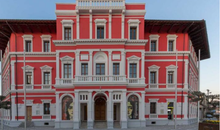
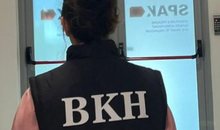
The race for the head of the BKH, the third phase on July 11
2025-07-04 11:20:23

Toxic phrases that show your relationship is in trouble
2025-07-04 11:00:10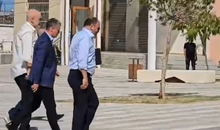
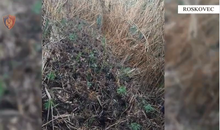
2 brothers arrested in Roskovec, cultivating narcotic plants
2025-07-04 10:38:08
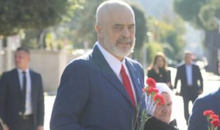
Celebrating his 61st birthday today, Rama is surprised at the pink headquarters
2025-07-04 10:21:46
Suspended from duty 4 days ago, Jonaid Myzyri appears before the Criminal Court
2025-07-04 10:16:27
